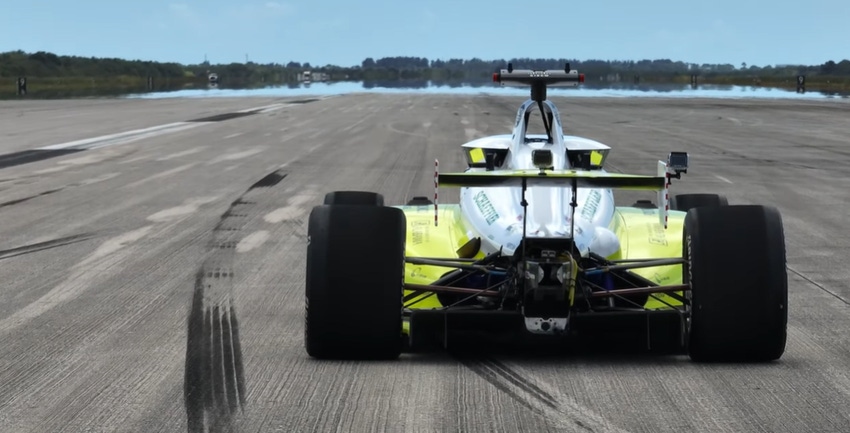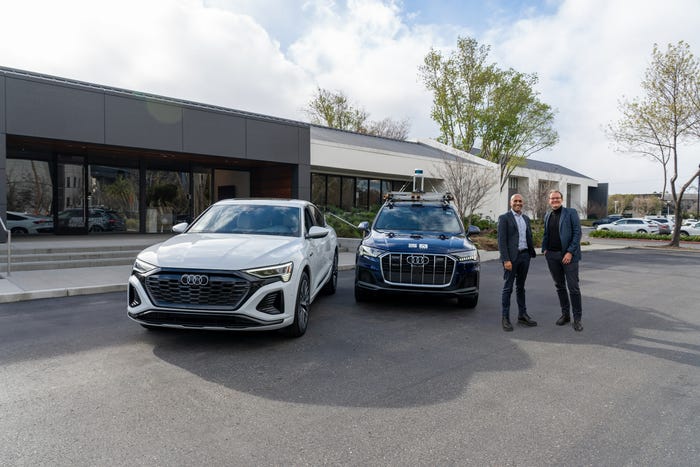The vehicle was designed for the Indy Autonomous Challenge
May 3, 2022

Who said self-driving vehicles shouldn’t go fast? An astonishing world record speed of 192.2 mph was reached by a fully autonomous race car earlier this week.
The race car, a Dallara AV-21 programmed by Team PoliMOVE from Italy’s Politecnico di Milano and the University of Alabama, was timed at the Kennedy Space Center in Florida.
The Space Shuttle airstrip at Cape Canaveral, the scene of many historic feats, was witness to another epic achievement.
As video of the record-breaking run shows, the driverless PoliMOVE car demonstrated phenomenal acceleration before topping out at 192.2 mph – well ahead of the previous best of 175.49 mph.
The top speed was obtained as an average of over 0.6 miles in two consecutive attempts in opposite directions (to eliminate the effects of the wind).
PoliMOVE initially developed the car for the Indy Autonomous Challenge, a competition designed specifically to “advance technology that can speed the commercialization of fully autonomous vehicles and deployments of advanced driver-assistance systems (ADAS) to increase safety and performance.”
Earlier this year, the PoliMOVE car showed its potential in an IAC race held at the Las Vegas Speedway during CES, where it left other autonomous Dallara AV-21 racers trailing, recording a record speed on an oval of 173 mph.
Organizers of the IAC say the AV-21 is the “most technologically advanced, fastest autonomous race car ever assembled.”
The PoliMOVE record-breaker has a chassis sourced from the Dallara Indy Lights, a human-driven race car that competes in the Indy Lights racing series.
But where it differs is that it features three Luminar Hydra Lidar sensors to provide 360-degree long-range sensing, which ensures safe autonomy at high speeds, as well as radar and cameras. All this is combined with cutting-edge computing and artificial intelligence algorithms to produce devastating performance.
Professor Sergio Savaresi, team lead from the Politecnico di Milano, expressed his delight at the achievement.
“We are thrilled with the world record, but we’re also excited by the fact that this data will be made available to all, and the industry will benefit from our work and learnings,” he said. “We were running a car operating on algorithms alone, where precision is paramount, and any small prediction error could have created a completely different outcome.”
The next step for an autonomous race car will be to break the 200 mph barrier.
About the Author(s)
You May Also Like


.png?width=700&auto=webp&quality=80&disable=upscale)
.png?width=700&auto=webp&quality=80&disable=upscale)

.png?width=300&auto=webp&quality=80&disable=upscale)
.png?width=300&auto=webp&quality=80&disable=upscale)
.png?width=300&auto=webp&quality=80&disable=upscale)
